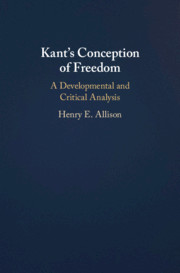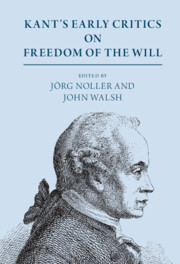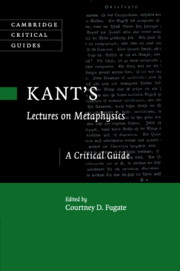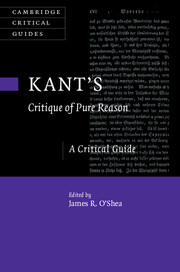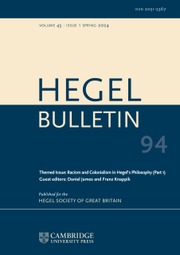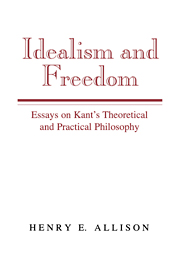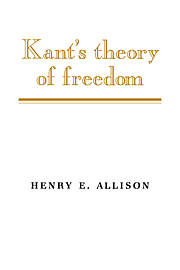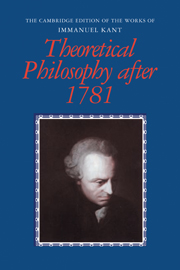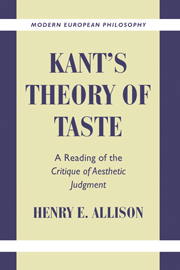Kant's Conception of Freedom
Although a good deal has been written about Kant's conception of free will in recent years, there has been no serious attempt to examine in detail the development of his views on the topic. This book endeavours to remedy the situation by tracing Kant's thoughts on free will from his earliest discussions of it in the 1750s through to his last accounts in the 1790s. This developmental approach is of interest for at least two reasons. First, it shows that the path that led Kant to view freedom as a transcendental power that is both radically distinct from and compatible with the causality of nature was a winding one. Second, it indicates that, despite the variety of views of free will that Kant held at various times, the concept occupied a central place in his thought, because it was the point of union between his theoretical and practical philosophy.
- Illustrates the process of reasoning that lies behind Kant's conception of free will
- Considers a wide range of contemporary and present-day objections to Kant's account
- Provides a comprehensive overview of Kant's views on freedom, without sacrificing detail
Reviews & endorsements
‘In terms of scholarship, organization, and clarity this book lives up to the standard Allison established in his previous books, and it is an invaluable resource for scholars of Kant or those interested in the concept of freedom.’ S. E. Forschler, Choice
'Allison’s book is astounding in both breadth and depth. It is a fantastic resource that will likely prove to be essential reading for anyone who wants a deep understanding of Kant’s theory of freedom.' Timothy Aylsworth, Journal of the History of Philosophy
‘Allison’s book will be an invaluable and indispensable resource for decades to come. That he has produced such a work at this stage of his career can only be admired by those who are following him.’ Paul Guyer, Kant Studien
Product details
February 2020Hardback
9781107145115
552 pages
235 × 157 × 35 mm
0.89kg
Available
Table of Contents
- 1. Kant`s writings of the 1750s and the place in them of the free will issue
- 2. Kant`s theoretical philosophy in the early 1760s and its relation to his conception of freedom
- 3. Kant`s moral philosophy in the early 1760s
- 4. Kant`s dialogue with Rousseau
- 5. From the 'great light' to the 'silent decade': Kant`s thoughts on free will from 1769–1780
- 6. Kant`s account of free will in the Critique of Pure Reason
- 7. From the Critique of Pure Reason to the Groundwork
- 8. The fact of reason and freedom in the Critique of Practical Reason
- 9. The Critique of the Power of Judgment and the transition from nature to freedom
- 10. After the Critique of the Power of Judgment: Kant`s final thoughts on free will.

